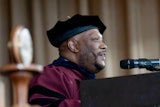The Centers for Economic Excellence Program has drawn cheers from higher education and political officials as a model for establishing South Carolina as a base for research that’s groundbreaking and creates jobs.
The program, paid for with lottery and private money, has brought in nearly 5,000 new jobs that pay an average of $63,000 per year, program supporters say. And the best-paying of those jobs are those held by endowed chairs, nationally recognized research experts hired by the state’s three research universities.
But, of the 34 endowed chairs hired so far, only three have been women and none has been African-American.
“It doesn’t surprise me,” Joan Herbers, president of the Association for Women in Science, says of the CoEE’s track record in hiring women. “It disheartens me.”
Higher education and industry officials sometimes disagree on whether there are too few African-Americans and women in the sciences or if the problem is that those making the hiring decisions simply overlook them.
Herbers says she does not believe overt sexism is the reason comparatively few women are hired for high-level jobs like the ones in South Carolina’s CoEE program. Instead, she argues that hiring officials simply don’t extend themselves enough when they consider candidates.
“When you do not give explicit directions about diversity, it gets ignored,” she says. “People tend to think of people they know. And the people making the decision are themselves White and male.”
Colleges and universities, particularly historically Black colleges and universities, have pushed in recent years to increase the number of African-Americans in the fields of science, technology, engineering and math.
Scholarship opportunities abound for students interested in pursuing a career in one of the so-called STEM disciplines.
In South Carolina, Claflin University has had success in recruiting and graduating African-American students into STEM programs. The university promises a rigorous program of study but quickly offers assistance if a student struggles with coursework.
Claflin’s success—it regularly sends graduates on to prestigious graduate and medical programs—is underscored by the $5 million, 14,000-square foot molecular science facility it opened in March 2010.
Angela Peters, chairwoman of the Chemistry Department at Claflin, notes the prestige attached to endowed chairs positions in South Carolina and other states.
“Endowed chairs are one of the most prestigious positions in a department,” she says. “There are very few endowed chairs nationally occupied by women in the sciences. The reason is simple: There are very few women in the pipeline who are qualified to be in such a prestigious position.”
Herbers disagrees with Peters’ assessment. For years, she says, women have accounted for 20 to 30 percent of medical school graduates.
“There are women in the pipeline,” she says. “They are just overlooked.”
In South Carolina, the endowed chairs positions come with hefty salaries. State salary records show the lowest-paid endowed chair in the state makes $108,000 per year. The highest-paid makes $375,000 per year.
The salary records show that the 34 endowed chairs make an average annual salary of $204,794. The three women chairs earn an average annual salary of $159,417.
Each of the three South Carolina universities that hire endowed chairs through CoEE—Clemson University, the Medical University of South Carolina and the University of South Carolina at Columbia—make their own hiring decisions.
Dr. Ray Greenberg, president of MUSC, which has hired the most endowed chairs through CoEE, says diversity is considered when decisions are made.
“In all faculty recruitments at MUSC, there is a desire to identify female and minority candidates, but, in some areas of research, there are few senior candidates available nationally,” he says.
Greenberg says the value of the CoEE program extends beyond the question of who fills the endowed chair positions.
“We believe that the many job opportunities that will be created by the CoEE program, beyond the chair holders themselves, will create many promising jobs for all South Carolinians,” he says.















